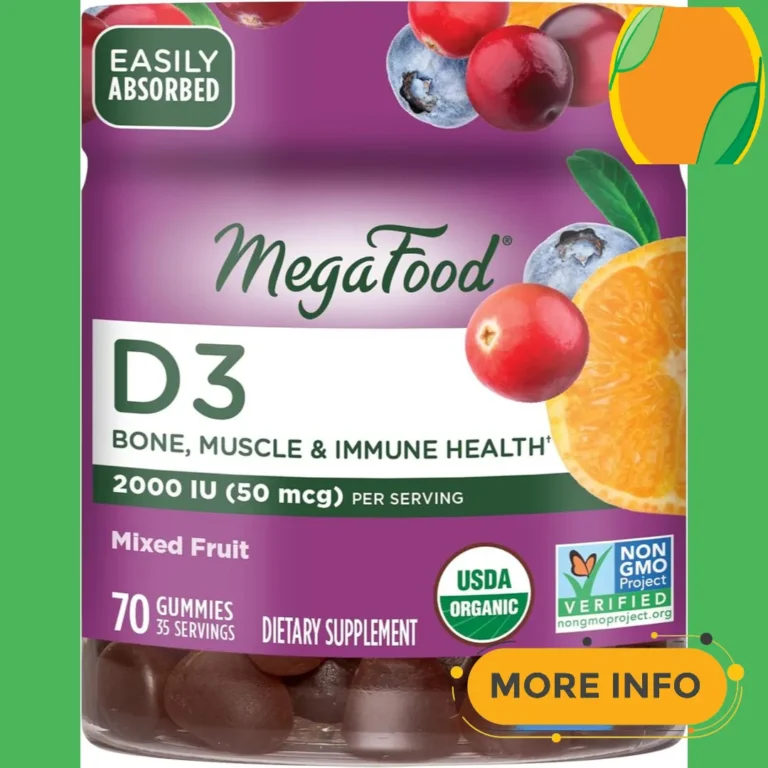Read This To Learn All About Vitamins And Minerals
In today’s fast-paced world, it can be challenging to ensure that we are getting all of the essential vitamins and minerals our bodies need to function at their best.
With so many different products on the market claiming to provide all of the nutrients we need, it can be overwhelming to know which ones are truly beneficial.
That’s why it’s important to arm yourself with the knowledge necessary to make informed decisions about your health.
In this comprehensive guide, we will cover everything you need to know about vitamins and minerals, including their role in the body, how to ensure you are getting enough of them, and the potential risks of deficiencies.
Whether you are looking to improve your overall health, boost your immune system, or simply want to better understand the importance of these essential nutrients, this article has got you covered.
By the time you finish reading, you will have a thorough understanding of vitamins and minerals and be better equipped to make smart choices when it comes to your health and well-being.
Table of Contents Read This To Learn All About Vitamins And Minerals
Key Vitamins for Optimal Health: Overview of essential vitamins and their benefits for daily well-being
The human body requires a variety of vitamins to function properly and maintain overall health.
Vitamin A, essential for vision and immune function, can be found in foods like carrots, sweet potatoes, and spinach.
Vitamin C, crucial for collagen production and immune support, is abundant in citrus fruits, bell peppers, and strawberries.
Vitamin D plays a vital role in bone health and mood regulation and can be obtained from sunlight exposure and fortified foods.
Vitamin E, a powerful antioxidant that protects cells from damage, is commonly found in nuts, seeds, and vegetable oils.
The B-complex group, including vitamins B1, B2, B3, B5, B6, B7, B9, and B12, are essential for energy production, metabolism, and nerve function, and can be sourced from a diverse range of foods like meat, fish, dairy, and whole grains.
Ensuring an adequate intake of these key vitamins through a balanced diet or supplementation is crucial for supporting optimal health and well-being.
Understanding Mineral Needs: Dive into the world of minerals and how they support bodily functions
Minerals are essential micronutrients that play a fundamental role in supporting bodily functions and maintaining health.
From calcium and magnesium for bone strength and muscle function to iron for oxygen transport and energy production, minerals are integral to various physiological processes.
Potassium regulates fluid balance and nerve transmission, while zinc supports immune function and wound healing.
Other important minerals like selenium, copper, and manganese act as cofactors in enzymatic reactions, contributing to antioxidant defense mechanisms and promoting overall well-being.
Understanding the significance of minerals in the body’s biochemical pathways underscores the importance of incorporating a diverse range of nutrient-dense foods into your diet to meet these essential mineral needs and support optimal health outcomes.
Importance of Vitamin C: Learn about this powerful antioxidant and its crucial role in immunity
Vitamin C, also known as ascorbic acid, is a powerful antioxidant with a crucial role in supporting various bodily functions, particularly immunity.
This essential nutrient plays a key part in boosting the immune system by helping the body combat infections and illnesses.
Vitamin C promotes the production of white blood cells, which are vital for fighting off pathogens and maintaining overall health.
Additionally, this water-soluble vitamin acts as an antioxidant, protecting cells against damage from free radicals and enhancing the body’s ability to repair and regenerate tissues.
Adequate intake of Vitamin C through a balanced diet rich in fruits and vegetables is essential for immune function, collagen synthesis, wound healing, and overall well-being.
Its multifaceted benefits make Vitamin C an indispensable nutrient that contributes significantly to optimal health and wellness.
Fueling Your Body Right: How vitamins and minerals work together to maintain overall health
The synergy between vitamins and minerals is essential for maintaining overall health and well-being.
These micronutrients work together in a complex network within the body, each playing a specific role and often relying on the presence of others to function effectively.
For instance, Vitamin D facilitates calcium absorption, which is crucial for bone health and muscle function.
Similarly, Vitamin K is essential for proper blood clotting and works synergistically with Vitamin D to support bone metabolism.
Minerals like magnesium, zinc, and iron are vital for numerous physiological processes, such as energy production, enzyme reactions, and immune function.
By understanding how different vitamins and minerals interact and complement each other, individuals can optimize their nutrient intake to support various bodily functions and maintain overall health.
Vitamin D and Bone Health: Explore the link between Vitamin D and strong, healthy bones
Vitamin D plays a pivotal role in maintaining bone health and strength by aiding in the absorption of calcium.
This important vitamin helps regulate the levels of calcium and phosphorus in the body, both of which are essential for maintaining healthy bones.
Without adequate levels of Vitamin D, the body struggles to absorb calcium efficiently, leading to potential issues like weakened bones and an increased risk of fractures.
Individuals with low levels of Vitamin D may experience conditions such as osteoporosis, a condition characterized by fragile bones.
Therefore, ensuring sufficient intake of Vitamin D through sunlight exposure, dietary sources, or supplements is crucial for supporting optimal bone health and reducing the risk of bone-related disorders.
Minerals for Energy: Discover minerals that help combat fatigue and boost energy levels
Iron and magnesium are two key minerals that play significant roles in combating fatigue and enhancing energy levels.
Iron is essential for the production of hemoglobin, the protein in red blood cells that transports oxygen throughout the body.
Inadequate iron levels can lead to anemia, causing symptoms like fatigue, weakness, and decreased energy.
Incorporating iron-rich foods such as lean meats, spinach, and legumes into your diet can help maintain optimal iron levels and combat fatigue.
Similarly, magnesium is involved in over 300 enzymatic reactions in the body, including those responsible for energy production.
A deficiency in magnesium can contribute to feelings of fatigue and reduced energy levels.
Consuming magnesium-rich foods like nuts, seeds, and whole grains or using supplements can help support energy metabolism and combat fatigue effectively.
By ensuring adequate intake of these essential minerals, individuals can promote sustained energy levels and combat fatigue effectively.
Vitamin E for Skin: Uncover the beauty benefits of Vitamin E for radiant, healthy skin
Vitamin E is renowned for its exceptional benefits in nurturing radiant and healthy skin.
As a potent antioxidant, Vitamin E plays a crucial role in protecting skin cells from damage caused by free radicals and environmental stressors.
Its anti-inflammatory properties can help reduce redness and inflammation, making it beneficial for individuals with sensitive or irritated skin.
Additionally, Vitamin E promotes skin hydration and elasticity, aiding in the prevention of premature aging and the formation of fine lines and wrinkles.
By incorporating Vitamin E-rich skincare products or consuming foods like nuts, seeds, and green leafy vegetables, individuals can harness the beauty benefits of Vitamin E for a glowing complexion and overall skin health.
Balancing Nutrient Intake: Tips on achieving a balanced diet rich in essential vitamins and minerals
Achieving a balanced diet rich in essential vitamins and minerals is crucial for maintaining optimal health and well-being.
To ensure proper nutrient intake, it is advisable to include a variety of foods from all food groups in your daily meals.
Aim to consume a colorful array of fruits and vegetables, as they provide a wide range of vitamins, minerals, and antioxidants.
Incorporating whole grains, lean proteins, and healthy fats into your diet can help meet your body’s nutritional needs.
Additionally, staying hydrated by drinking an adequate amount of water throughout the day is essential for supporting digestion, nutrient absorption, and overall bodily functions.
Planning your meals and snacks mindfully can help you achieve a balanced diet that nourishes your body with the essential nutrients it requires for optimal functioning.
In conclusion, understanding the role of vitamins and minerals in maintaining overall health and well-being is crucial for making informed decisions about our diet and lifestyle.
By recognizing the importance of essential nutrients and their diverse functions in the body, we equip ourselves with the knowledge necessary to support our immune system, promote proper growth and development, and enhance our overall vitality.
Whether through a balanced diet, supplementation, or consultation with a healthcare provider, prioritizing adequate intake of vitamins and minerals is a fundamental step towards achieving optimal health for a thriving future.
FAQ
What are some common vitamins and minerals that are essential for overall health and well-being?
Some common vitamins and minerals essential for overall health include Vitamin D for bone health, Vitamin C for immune function, Vitamin A for vision, B vitamins for energy production, iron for oxygen transport in the body, calcium for bone strength, magnesium for muscle function, and potassium for heart health.
These nutrients play vital roles in various bodily functions and maintaining overall well-being.
A balanced diet rich in fruits, vegetables, whole grains, lean proteins, and dairy products can help ensure adequate intake of these essential vitamins and minerals.
How can a deficiency in vitamins and minerals impact our physical and mental health?
A deficiency in vitamins and minerals can have profound effects on physical and mental health.
For example, Vitamin D deficiency can lead to weakened bones and increased risk of infections, while iron deficiency can cause fatigue and cognitive impairments.
Similarly, lack of B vitamins can result in mood disturbances and poor concentration.
Overall, nutrient deficiencies can compromise the immune system, cognitive function, energy levels, and overall well-being, highlighting the critical importance of maintaining a balanced diet to support optimal physical and mental health.
What are some sources of vitamins and minerals that we can incorporate into our daily diet?
Some sources of vitamins and minerals that can be easily incorporated into our daily diet include fruits and vegetables (such as oranges, spinach, and broccoli), nuts and seeds (like almonds and chia seeds), whole grains (such as quinoa and brown rice), lean proteins (such as chicken and fish), and dairy products (like yogurt and cheese).
Additionally, fortified foods like fortified cereals and plant-based milk alternatives can also be good sources of essential vitamins and minerals.
Eating a balanced diet that includes a variety of these foods can help ensure adequate intake of necessary nutrients for overall health and well-being.
Are there any potential risks or side effects associated with taking vitamin and mineral supplements?
Yes, there are potential risks and side effects associated with taking vitamin and mineral supplements.
These can include overdose symptoms, interactions with medications, upset stomach, allergic reactions, and changes in urine color.
It is important to consult with a healthcare provider before starting any new supplement regimen to ensure safety and appropriateness for individual needs.
How can we ensure that we are getting a sufficient amount of vitamins and minerals in our diet to support our health and immunity?
To ensure we are getting a sufficient amount of vitamins and minerals, we should focus on eating a balanced diet with a variety of fruits, vegetables, whole grains, lean proteins, and healthy fats.
It is also important to consider dietary restrictions or deficiencies and consult with a healthcare provider or dietitian if needed.
Using supplements wisely can also be beneficial, but it is best to obtain nutrients from whole foods whenever possible.
Consistently monitoring our nutrient intake and making healthy food choices is key to supporting our overall health and immunity.







